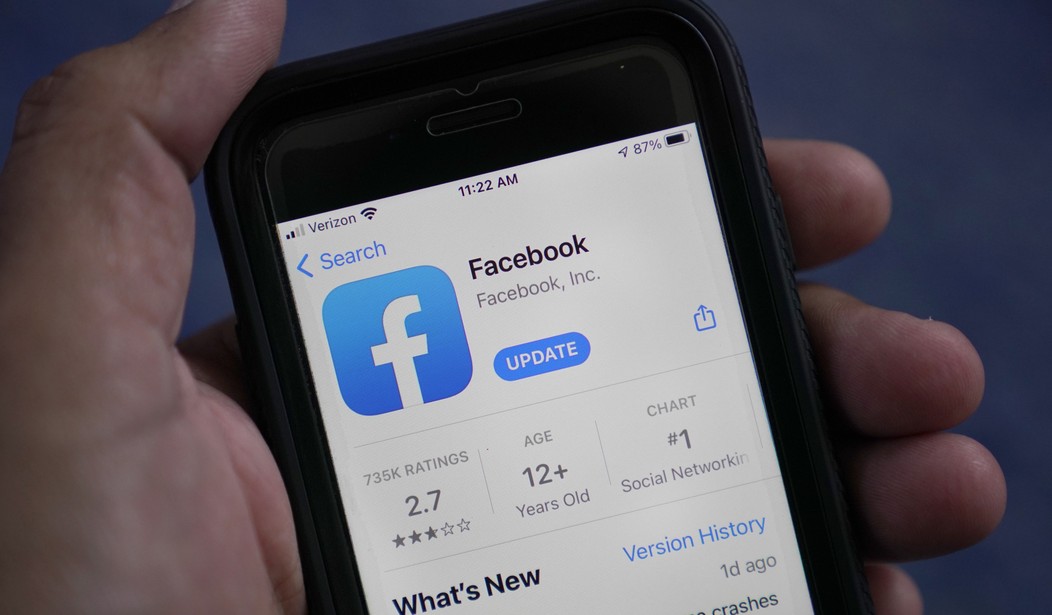Big Tech has a big appetite for power – and it fully intends to devour American democracy.
The recent reporting by The New York Post proves once again that political bias has always been and will always be the driving force behind Big Tech’s actions -- which is precisely why the American people should be wary of any tech giant’s campaign to influence the legislative process in Washington.
For years, social media giants such as Facebook have insisted that their censorship policies stem from good intentions, and that their public advocacy efforts are strictly nonpartisan.
“At Facebook, we took our responsibility to protect the integrity of this selection very seriously,” Facebook CEO Mark Zuckerberg said during a congressional hearing last year, later adding that the company’s civic engagement campaign “was done in a transparent and nonpartisan way as part of our ongoing commitment to supporting the civic process.”
Evidently, this declaration of fairness was merely a public relations facade concealing a darker partisan motive to influence American politics.
According to a recent bombshell report fromThe New York Post, Zuckerberg “spent hundreds of millions of dollars to turn out likely Democratic voters” in key swing states in the 2020 presidential election by funding “demonstrably ideological” nonprofit organizations.
In December 2020, the Amistad Project, a national constitutional litigation group that first challenged Zuckerberg’s spending in court, revealedt hat the Facebook CEO donated around $350 million to the left-leaning Center for Technology and Civic Life (CTCL) -- which went on to unequally distribute the funds in a manner that favored Democratic precincts and turned government election offices into partisan get-out-the-vote centers.
Facebook was not the only tech giant involved in this scheme, either.
As Mollie Hemingway writes in her new book, “Rigged,” Google founder Sergey Brin reportedly suggested “that ‘Jigsaw,’ a project Google had developed to combat Islamic terror propaganda, could be used to shape the opinions of Trump voters.” Hemingway also notes that some employees within the company reportedly formed a coalition to “brainstorm ways to use Google’s resources to undermine the Trump administration.”
Recommended
Such efforts to undermine our country’s democratic process are a major cause for concern. American voters are eager to learn the full truth about Big Tech’s involvement in the 2020 election, and to digest the findings of numerous ongoing investigations. The problem, however, is that legacy social media platforms have become self-appointed arbiters of truth, heavily suppressing information that might be damaging to their political ambitions.
It might be tempting, therefore, to support extensive federal regulations that would put unprecedented restrictions on the tech sector. But leaving the federal government in charge of reining in Big Tech would be a colossal mistake.
There is a very good reason why Big Tech companies are campaigning in favor of new federal regulations -- it is a laughable slap on the wrist for their unforgivable transgressions, and it actually gives them an advantage over smaller competitors who would be subject to the same rules. The real punishment for companies such as Facebook and Twitter is the rapid rise of powerful competitors -- not some bureaucratic overhaul of the current law.
Companies such as Facebook and Twitter, after all, are desperate to manage public discontent and to redirect the spotlight from their own actions. If federal regulations become the focal point of the public debate about Big Tech, then that would be a clear public relations victory for the tech giants.
Make no mistake, Congress must still consider making changes to Section 230, or at least begin enforcing it as it was written, in order to protect free speech and open discourse online. But we should not be fooled into thinking that these changes constitute a proportional response to Big Tech’s actions.
Social media platforms should serve as the contemporary public square to enable peaceful civic discourse and strive to bring people together. Big Tech companies, however, have repeatedly used the power of social media to divide the American people and to further their own political agenda.
We can no longer hope to fix the broken world of Big Tech by simply passing new laws in Congress. Our responsibility as Americans is to support alternatives to legacy social media platforms, and to build a brand new tech ecosystem that truly champions American values.

























Join the conversation as a VIP Member